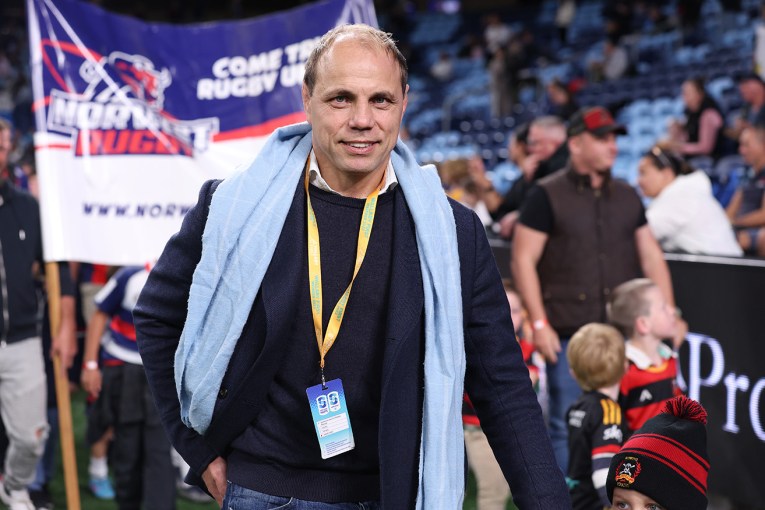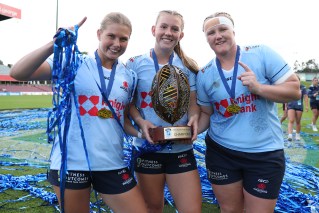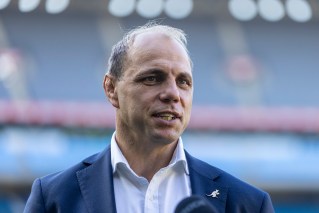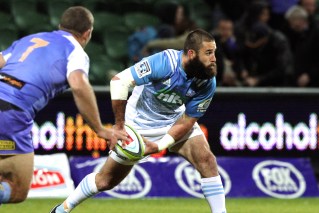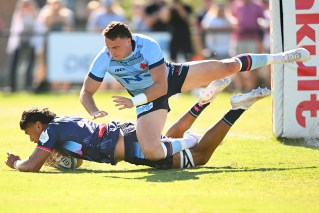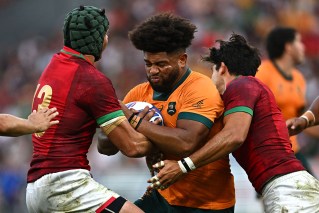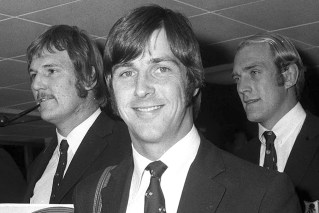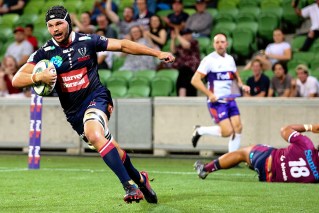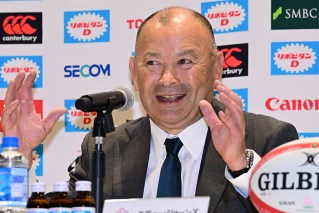Quade Cooper: Australian rugby’s Jekyll and Hyde
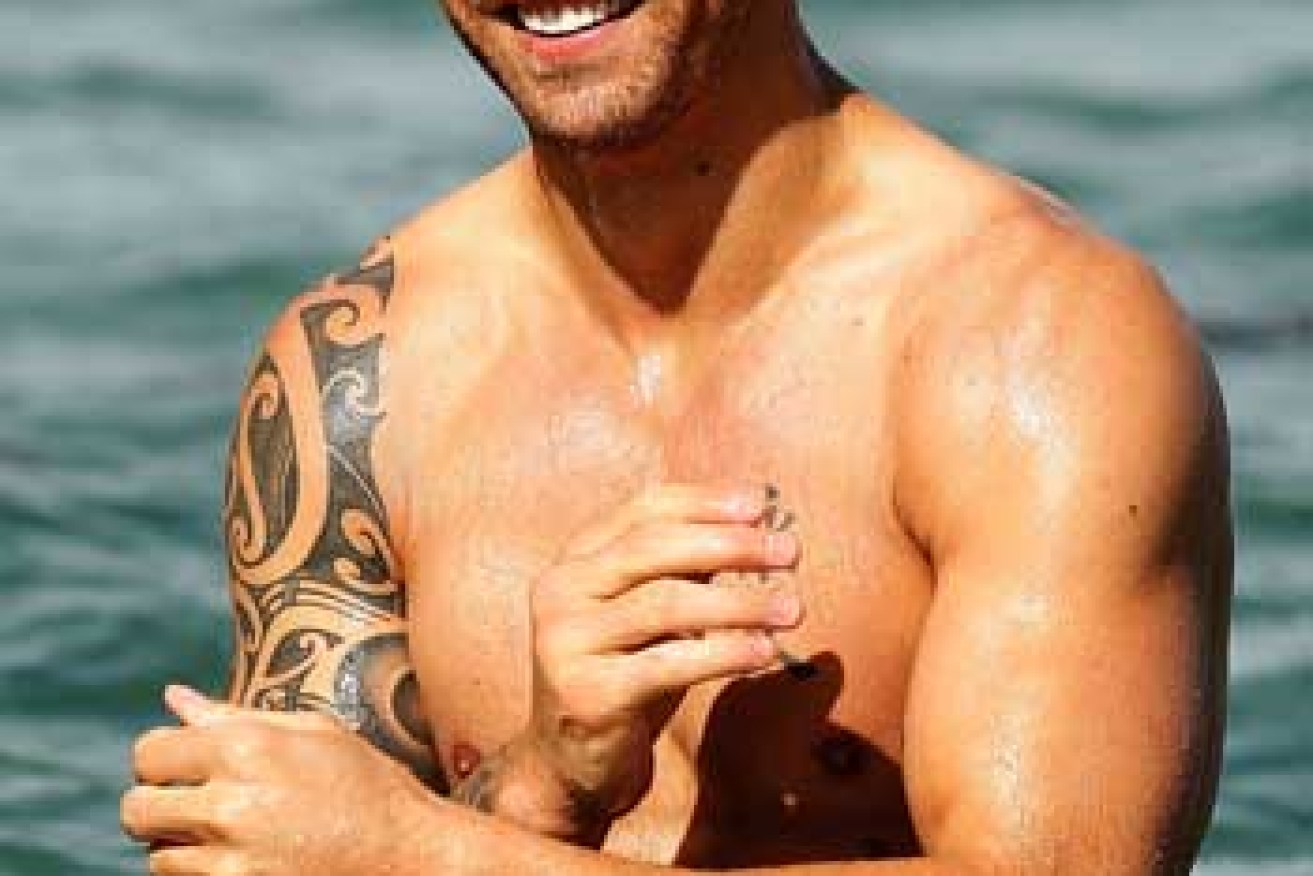
Quade Cooper has been left out of Australia's first game against Fiji. Photo: Getty
There’s no more polarising figure in Australian rugby than Quade Cooper. The Kiwi-born star is loathed and loved in equal measure.
At his best he is a mercurial talent, a side-stepping, free-flowing creative genius who can crack defences and set up tries.
At his worst, he’s an error-filled, high-risk playmaker, a poor tackler who borrowed laptops and struggles to handle big-time pressure.
• Cooper primed to shake World Cup demons
• Quade Cooper apologises for Twitter rant
• Japan’s monster Rugby World Cup upset
Some would call him the archetypal modern-day sportsman – arrogant and egotistical. Others say he’s just confident in his own world-class abilities.
Veteran writer Spiro Zavos describes Cooper as “the ‘Picasso of the Pass,’ with dazzling speed of hand” but who also has “a dark side to this genius”. “In tough situations for his team he disappeared from the battle.”

Cooper and Federico Pucciariello fight during the Wallabies clash with the Barbarians in 2008. Photo: Getty
His career so far, since bursting into the Aussie rugby consciousness in 2007 with the Reds, has been filled with massive highs and lows.
His debut for Australia was memorable, coming off the bench to score an amazing match-winning try that saved the Wallabies’ bacon against Italy.
In 2010 Cooper was named the best player in Super Rugby and he came to the fore in the national team under coach Robbie Deans.
The next season was a rollercoaster as the five-eighth signed with controversial agent Khoder Nasser and helped the Wallabies to their first Tri-Nations series victory in a decade.
Then came the 2011 World Cup, in his birthplace New Zealand, and it all came tumbling down.
A series of incidents leading up to the tournament with All Black skipper Ritchie McCaw made Cooper public enemy number one in his homeland.
The fly-half was booed mercilessly and his performances crumbled away against Ireland and in the semi-final against New Zealand.
In the final game against Wales it was capped off when he suffered a terrible ACL knee injury.
You could argue since that injury, and that terrible World Cup experience, Cooper hasn’t been the same player.

Quade Cooper has been left out of Australia’s first game against Fiji. Photo: Getty
He has been dogged by inconsistent form, controversy and injury.
His international career has never reached the same heights.
He’s been in conflict with the ARU over the size of his contract and almost left for French club Toulon earlier this year.
Cooper tweeted that the Wallaby environment was “toxic” in 2012 and was left out of the tour by the British and Irish Lions a year later, which the Wallabies lost and saw Deans sacked.
The Reds finished third from bottom in 2014 and again in 13th place this year.
He dabbled in professional boxing and missed most of the 2014 campaign with a shoulder injury.
This year Cooper has been given a fresh opportunity by new Wallaby coach Michael Cheika.
Australia took out the Rugby Championship but the 27-year old blew hot and cold, picking up yellow cards in matches against Argentina and New Zealand.
Still, Cheika persisted with the five-eighth and selected him in his 31-man squad.
Rival Bernard Foley has been given the nod for the number 10 jumper to face Fiji in the Wallabies’ World Cup opener. Cooper, who was not even named on the bench, is likely to face Uruguay in the second game on Sunday.
The key question is – can Cheika, and Wallabies fans, rely on him in the big games against Wales and England?
Will it be a return of the horrors of the World Cup in 2011, or has Cooper matured and is now ready to fulfil the promise shown in the early years of his career?
Australia is waiting to find out.

